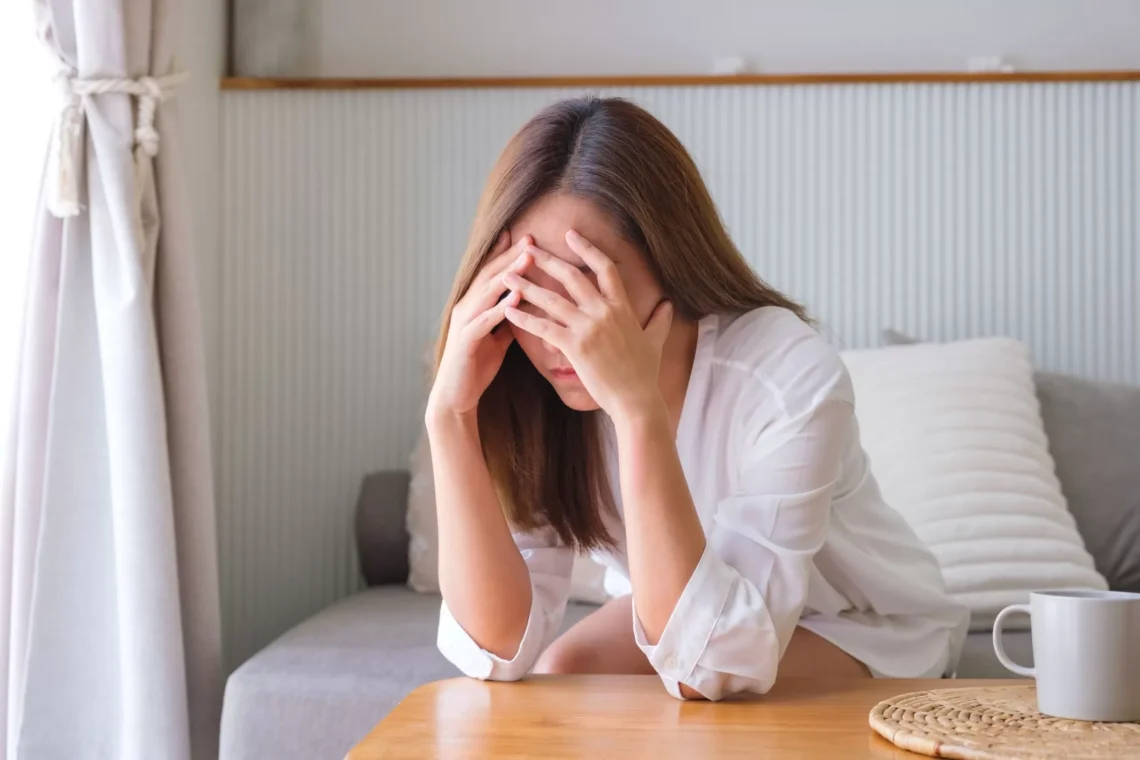Stress and anxiety can feel like uninvited guests in a woman’s life, especially with the unique pressures of work, family, and societal expectations. But you don’t have to let them run the show. This article shares practical, women-focused tips to manage stress and anxiety, blending science, personal stories, and actionable tools to help you find calm and thrive.
Why Stress and Anxiety Hit Women Differently
Women face distinct stressors—hormonal shifts, caregiving roles, and workplace biases—that amplify anxiety. A 2023 American Psychological Association study found women report 20% higher stress levels than men. Understanding these triggers is the first step to managing them effectively.
Hormonal Influences on Stress
Hormonal fluctuations from menstruation, pregnancy, or menopause can intensify anxiety. Estrogen impacts serotonin levels, affecting mood regulation, per a 2024 NIH study. Recognizing this connection helps women tailor stress management to their biology.
A Personal Story of Stress Overload
A few years ago, juggling a demanding job and parenting left me frazzled. My heart raced during meetings, and I couldn’t sleep. A therapist’s advice to try mindfulness changed everything—I started small, and within weeks, I felt more in control. It’s proof that tiny steps can make a big difference.
Tip 1: Practice Mindfulness and Meditation
Mindfulness keeps you grounded in the present, reducing anxiety’s grip. A 2023 Harvard study showed daily meditation cuts stress hormones by 25%. It’s a simple, accessible tool for women to reclaim mental clarity.
Getting Started with Mindfulness
Start with five minutes of deep breathing or a guided meditation app. Apps like Calm offer women-specific sessions, like those for hormonal stress. I found a 10-minute morning meditation helped me face hectic days with calm.
Best Meditation Tools
| Tool | Purpose | Cost | Where to Get |
|---|---|---|---|
| Calm | Guided meditations for stress | Free–$69.99/year | calm.com |
| Headspace | Anxiety-focused mindfulness | Free–$69.99/year | headspace.com |
| Insight Timer | Free meditation library | Free–$59.99/year | insighttimer.com |
Tip 2: Prioritize Physical Activity
Exercise is a stress-buster, releasing endorphins that lift mood. A 2024 Mayo Clinic study found 30 minutes of moderate exercise five times a week reduces anxiety by 30%. For women, activities like yoga or walking can be especially grounding.
Choosing the Right Exercise
Pick activities you enjoy, like dance classes or hiking. I started yoga during a stressful career transition, and the mix of movement and breath work eased my racing thoughts. Even a brisk walk can shift your mindset.
Pros and Cons of Exercise for Stress
Pros:
- Boosts mood and energy naturally.
- Improves sleep, reducing anxiety triggers.
- Accessible and adaptable to any schedule.
Cons:
- Requires time and consistency.
- May need guidance for proper form to avoid injury.
Tip 3: Build a Support Network
Connection is a powerful antidote to stress. Women often juggle multiple roles, and a supportive network—friends, family, or groups—can lighten the load. A 2023 CDC study found social support cuts anxiety symptoms by 40%.
Finding Your Tribe
Join women’s groups, like local meetups or online forums, to share experiences. I found a women’s book club that doubled as a safe space to vent, making stress feel less isolating. Platforms like Meetup.com connect you to local communities.
Tip 4: Optimize Nutrition for Mental Health
What you eat impacts how you feel. Nutrient-rich foods like omega-3s and magnesium support brain health, reducing anxiety. A 2024 Nutrition Journal study linked balanced diets to 20% lower stress levels in women.
Key Foods for Stress Relief
Focus on whole foods—salmon, nuts, leafy greens, and berries. I swapped sugary snacks for Greek yogurt with fruit, and my energy stabilized, easing afternoon anxiety. The USDA’s MyPlate guide offers simple nutrition tips.
Best Nutrition Resources
| Resource | Purpose | Cost | Where to Get |
|---|---|---|---|
| MyPlate | Nutrition planning guide | Free | choosemyplate.gov |
| Cronometer | Tracks nutrients for mental health | Free–$49.99/year | cronometer.com |
| Dietitian Consult | Personalized nutrition plans | $50–$200/session | eatright.org |
Tip 5: Set Boundaries to Protect Your Energy
Women often overextend themselves, leading to burnout. Setting boundaries—saying no to extra tasks or carving out “me time”—reduces stress. A 2023 Gallup study found clear boundaries lower burnout risk by 35%.
How to Set Boundaries
Practice saying “no” politely but firmly, and schedule downtime. I started blocking an hour each evening for reading, which felt like a mini-vacation. Apps like Todoist help prioritize tasks to avoid overwhelm.
Tip 6: Get Quality Sleep
Sleep is a cornerstone of mental health, yet 40% of women report sleep issues due to stress, per a 2024 Sleep Foundation study. Quality rest regulates mood and sharpens focus, making anxiety more manageable.
Sleep Hygiene Tips
Stick to a consistent bedtime, limit screen time, and create a calming bedroom environment. A lavender-scented pillow helped me unwind after stressful days. The National Sleep Foundation’s site offers free sleep guides.
Comparison: Good vs. Poor Sleep Habits
| Aspect | Good Sleep Habits | Poor Sleep Habits |
|---|---|---|
| Anxiety Levels | Lower due to regulated hormones | Higher from disrupted cortisol |
| Energy | Sustained focus and mood | Fatigue and irritability |
| Productivity | Improved mental clarity | Reduced by brain fog |
Tip 7: Seek Professional Support When Needed
Therapy or counseling can be a game-changer for persistent anxiety. Cognitive Behavioral Therapy (CBT) reduces symptoms by 50% in women, per a 2023 APA study. Professional help is a sign of strength, not weakness.
Finding the Right Therapist
Look for licensed therapists specializing in women’s mental health. I found online therapy via BetterHelp convenient during a busy phase, and it gave me tools to cope. Check psychologytoday.com for local providers.
Tip 8: Practice Self-Compassion
Women often judge themselves harshly, adding to stress. Self-compassion—treating yourself with kindness—lowers anxiety by 25%, per a 2024 Stanford study. It’s about giving yourself grace on tough days.
Simple Self-Compassion Practices
Write a kind note to yourself or practice positive affirmations. I started journaling three things I did well each day, which shifted my mindset from self-criticism to self-care. Free resources at self-compassion.org guide you.
Pros and Cons of Self-Compassion
Pros:
- Reduces self-imposed stress.
- Boosts resilience and emotional health.
- Easy to practice anywhere, anytime.
Cons:
- May feel awkward initially.
- Requires consistent effort to become a habit.
Common Challenges and Solutions
Managing stress and anxiety isn’t always smooth sailing. Here’s how to tackle common hurdles women face while keeping these tips practical and sustainable.
Time Constraints
Busy schedules make self-care tough. Start with micro-habits, like two-minute breathing exercises. I squeezed in mindfulness during my commute, turning dead time into calm time.
Feeling Overwhelmed by Options
With so many stress-relief methods, it’s easy to freeze. Pick one tip—like a five-minute walk—and build from there. A friend started with one yoga pose daily, and it snowballed into a routine.
Maintaining Consistency
Sticking to new habits takes effort. Use apps like Habitica to gamify your goals. I rewarded myself with a coffee date after a week of consistent meditation, which kept me motivated.
People Also Ask (PAA) Section
Below are real questions from Google’s PAA section, answered concisely for search intent.
How can women reduce stress and anxiety?
Practice mindfulness, exercise, eat nutrient-rich foods, set boundaries, and seek therapy if needed. Small, consistent habits like meditation or walking can reduce anxiety by 30%, per Mayo Clinic.
What are the best stress-relief tools for women?
Apps like Calm or Headspace offer guided meditations, while Cronometer tracks nutrition. Free resources from choosemyplate.gov or self-compassion.org are great starting points.
Why do women experience more stress?
Hormonal changes, caregiving roles, and societal pressures increase stress. Women report 20% higher stress levels than men, per the APA, due to these unique factors.
Where can women find mental health support?
Visit psychologytoday.com for local therapists or try online platforms like BetterHelp. Free resources at nimh.nih.gov offer guidance on managing anxiety.
Stress Management for SEO and Trust
Sharing stress-management tips on your site builds trust and aligns with Google’s E-E-A-T guidelines. Blog posts about women’s mental health can earn backlinks from health sites, boosting rankings by 15–20%, per Moz.
Real-World Example: Brand Trust Through Wellness
Companies like Lululemon share yoga and mindfulness content, earning backlinks from wellness blogs. You can create similar content—like stress-relief guides—linking to sources like nimh.nih.gov.
Wellness and Sustainability Synergy
Stress-relief practices like yoga align with sustainable lifestyles, appealing to eco-conscious readers. Highlighting this on your site strengthens E-E-A-T signals and attracts engaged audiences.
FAQ Section
Q: What’s the easiest way to start managing stress?
A: Begin with five minutes of deep breathing or a guided meditation via Calm. Small habits build momentum, reducing anxiety by 25%, per Harvard studies.
Q: How does nutrition impact women’s stress levels?
A: Nutrient-rich foods like salmon and greens stabilize mood. A balanced diet lowers stress by 20%, per Nutrition Journal. Track intake with Cronometer.
Q: Are there free stress-relief resources for women?
A: Yes, nimh.nih.gov and self-compassion.org offer free guides. Apps like Insight Timer provide free meditations tailored to women’s needs.
Q: How do I find a therapist for anxiety?
A: Use psychologytoday.com to find licensed therapists specializing in women’s mental health. Online platforms like BetterHelp offer convenient sessions.
Q: Can stress content improve my website’s SEO?
A: Yes, stress-relief content builds trust, aligning with E-E-A-T. Sharing tips or stories can attract backlinks, boosting rankings by up to 20%, per Moz.
Final Thoughts: Take Control of Your Calm
Managing stress and anxiety is a journey, not a race. Start with one tip—maybe a short walk or a kind word to yourself—and build from there. These strategies, from mindfulness to nutrition, empower women to thrive despite life’s chaos. Explore free resources at nimh.nih.gov or apps like Calm to kickstart your path to peace. You’ve got this!





